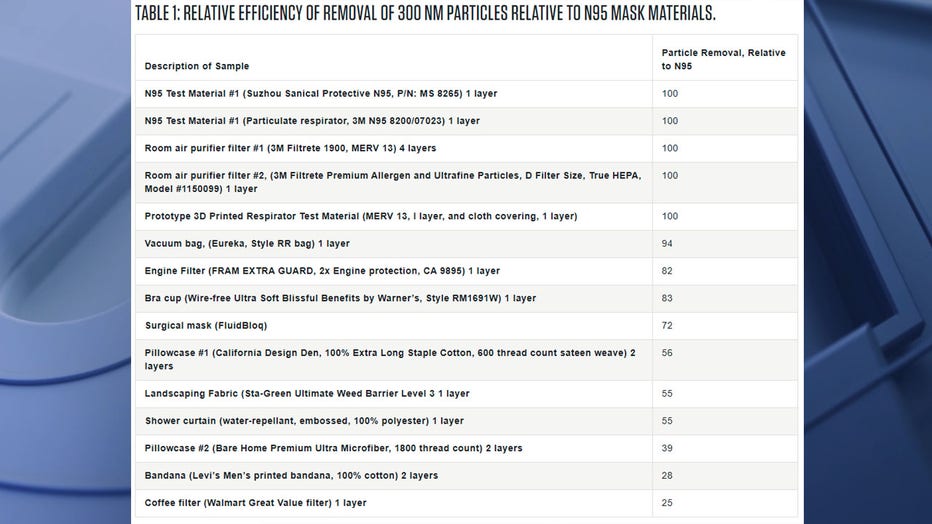DIY masks: Texas A&M researchers evaluate effectiveness of different materials
Texas A&M researchers evaluate effectiveness of different materials
Doctor Sarah Brooks with Texas A&M University and her students are working to figure out which materials are best for homemade masks.
COLLEGE STATION, Texas - Does your current DIY COVID-19 face mask actually work? Experts from Texas A&M are studying which household materials make the most effective filters for face masks amid the coronavirus outbreak.
According to Texas A&M officials, scientists from the university are currently testing a variety of popular DIY mask materials in order to give consumers "fact-based" information on different mask options.
Bobby Bandito, better known as Matthew McConaughey, shows you how to make a bandanna mask
The short tutorial even rhymes, alright alright alright.
RELATED: Bobby Bandito, better known as Matthew McConaughey, shows you how to make a bandana mask
Dr. Kumar explains how to safely take on and off your masks, gloves
Masks should fully cover the nose and mouth.
RELATED: How to use and remove gloves, masks safely
“We are conducting a study evaluating a wide range of household materials as resources for constructing DIY face masks,” said Sarah D. Brooks, director of Texas A&M University’s Center for Atmospheric Chemistry and the Environment (CACE) and professor in the Department of Atmospheric Sciences in the College of Geosciences.
---------
Get breaking news alerts in the FOX 7 Austin News app. It is FREE!
---------
According to the university, scientists used aerosol counting and sizing equipment to produce airborne samples of non-biological surrogate particles and measured their concentration before and after passing a sample of the air through the materials.
In the study, researchers tested the effectiveness of N-95 respirators, which they found to be completely effective in stopping non-biological surrogate particles, and compared the effectiveness of masks made of household articles.
According to Texas A&M's CACE website, so far these are the results of the materials tested:

(Texas A & M)
According to researchers, the best face maks remain to be the N95 respirators while the worst materials on the list are coffee filters and bandanas.
“Effective face protection must fit snugly around the mouth and nose, and must be made of appropriate materials,” Brooks said. “Our results show that while a standard bandana provides some protection, certain household materials, including room air filters and vacuum bags, are more effective at blocking the virus’s passage through a mask. However, many other household materials do not provide additional filtering capability. In summary, make your cloth masks, but stitch a layer of either of these into its lining, and you may have a mask with much better filtering capability and better protection against transmission of the virus.”
CLICK HERE FOR THE LATEST INFO ON THE CORONAVIRUS OUTBREAK
---
FOX 7 Austin is working to keep you up to date with coronavirus, with both local and national developments. Every weekday we're live at 12 p.m. with a special show reporting the latest news, prevention tips and treatment information.
You can watch live in your FOX 7 Austin app or on the FOX 7 Austin Facebook page.
You can also get the latest COVID-19 news from around the country at coronavirusnow.com.

